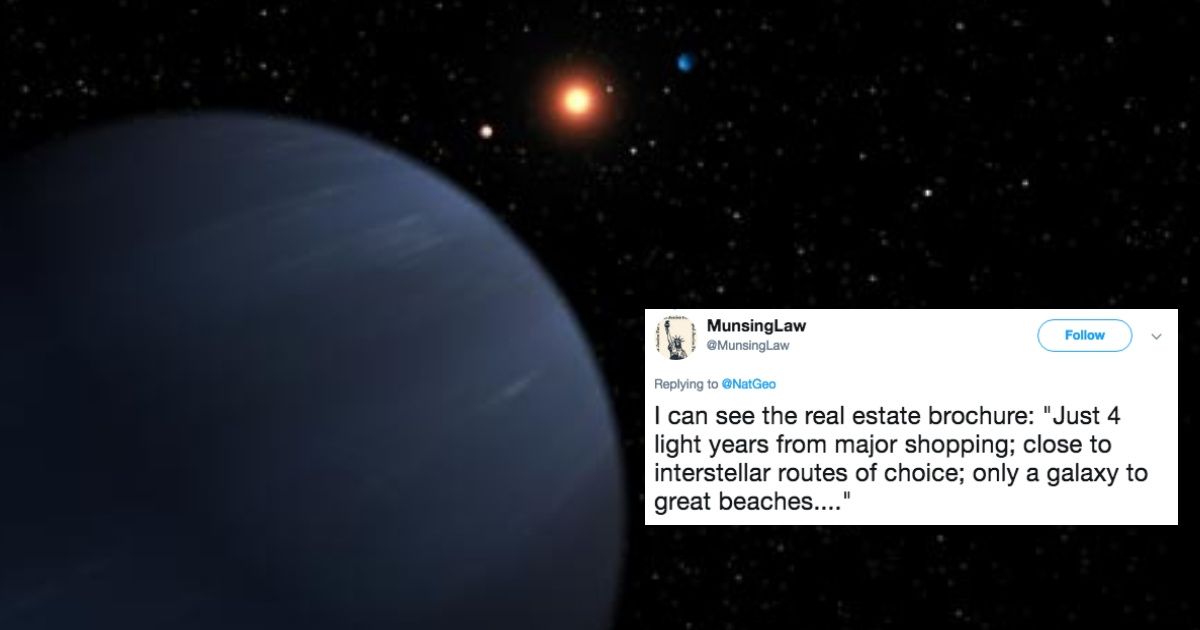Thank dog, we're saved!
A new "Super-Earth" has been discovered and it couldn't have come at a better time, because Regular Earth gotta go. Fires, hurricanes, other people--we've really wreaked havoc on this one, so this is the best possible news! And it's only six light years away! Which is just *Googles* 35.28 trillion miles...
Oh.
But still, in space terms, that's pretty darn close, so it is an extraordinary finding nonetheless--yet more evidence that despite what so many of us think, the world emphatically does not revolve around us.
Hanging out near Barnard's Star, a red dwarf, the newly discovered expolanet, cleverly named "Barnard's Star b," is the closest world to Earth ever discovered in a single star system, and is the second closest of all known exoplanets. The closest, an Earth-scale world called Proxima b, is four light years away in the Alpha Centauri system.
Barnard's Star b is at least three times the size of earth, and has a year that is only 233 days long, which sounds like such a blessing. (Imagine just getting a year the hell over with in eight months!) But because nothing can ever just be simple and good, Barnard's Star b comes with one serious drawback: it is colder than... well, like, anything you can possibly think of: about -274 Farenheit. So, you know, bring a sweater or whatever!
Barnard's Star has been the subject of scientific scrutiny for over 100 years due to its uniqueness: it's close to Earth, moves extremely rapidly and is very old--a ripe seven to 12 billion years of age. More intriguing is that while Red dwarfs usually produce violent flares that make their associated planets unsustainable for any kind of life, Barnard's Star keeps its flares to a minimum, making it possible that the system holds habitable environments somewhere.
On social media, many people were enthralled by this new discovery:
But mostly, it was just jokes about existential dread...
Here's hoping!
So where is all this research leading? As the study's co-author Cristina Rodriguez-Lopez, of Spain's Institute of Astrophysics of Andalusia put it: "This discovery means a boost to continue searching for exoplanets around our closest stellar neighbors, in the hope that eventually we will come upon one that has the right conditions to host life."
THANK GOD. Help us, Cristina Rodriguez-Lopez, you're our only hope!
H/T Vice, Washington Post
 COMICSANDS
COMICSANDS percolately
percolately georgetakei
georgetakei secondnexus
secondnexus george's picks
george's picks












